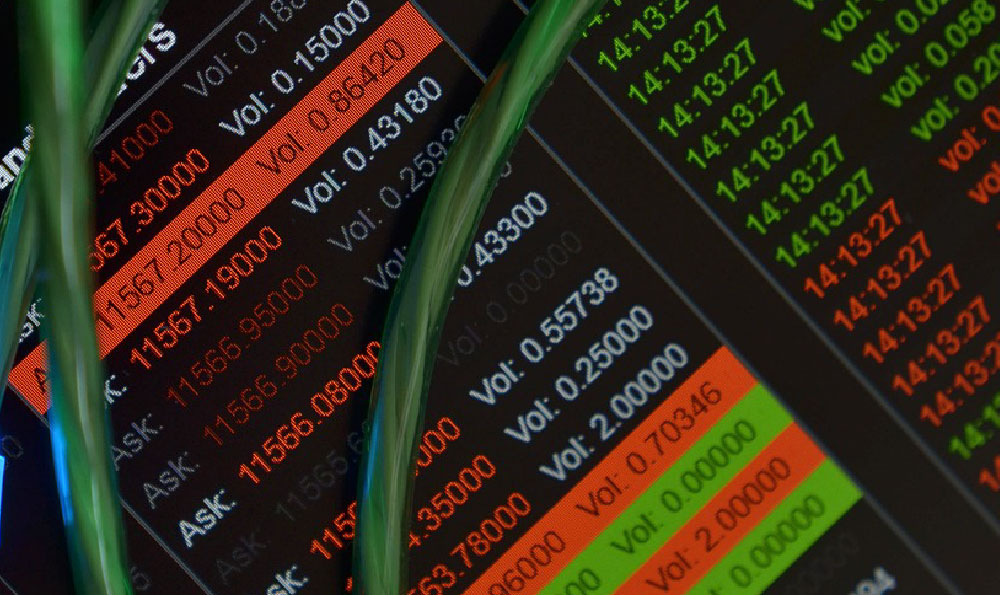
Currency trading, often referred to as Forex (Foreign Exchange) trading, holds a certain allure for many seeking financial gain. The promise of potentially high returns and the accessibility of 24/5 trading hours contribute to its widespread appeal. However, the question of whether it's genuinely profitable and whether individuals can truly make money requires a nuanced and realistic examination. The answer, like most things in finance, isn't a simple yes or no.
The Forex market is the largest and most liquid financial market globally, with trillions of dollars changing hands daily. This sheer volume provides ample opportunities for traders to profit from even small price fluctuations in currency pairs. The core concept is simple: buy a currency at a lower price and sell it at a higher price, or conversely, sell a currency at a higher price and buy it back at a lower price. The difference represents your profit (or loss).
However, the simplicity of the concept belies the complexities involved in successful currency trading. Profitability in Forex trading isn't guaranteed, and it's certainly not a get-rich-quick scheme. A multitude of factors influence currency prices, making accurate prediction challenging, even for seasoned professionals. These factors include macroeconomic indicators (such as interest rates, inflation, and GDP growth), geopolitical events (such as elections and trade wars), and market sentiment.

One of the main reasons why many aspiring Forex traders fail is a lack of adequate education and understanding of the market dynamics. Entering the market without a solid foundation in technical and fundamental analysis is akin to navigating a ship without a compass. Technical analysis involves studying historical price charts and using various indicators to identify patterns and potential trading opportunities. Fundamental analysis, on the other hand, focuses on evaluating the underlying economic factors that drive currency values. A comprehensive understanding of both is essential for informed decision-making.
Another crucial aspect of profitable Forex trading is risk management. The Forex market is highly leveraged, meaning traders can control large positions with a relatively small amount of capital. While leverage can amplify profits, it can also magnify losses. Without proper risk management techniques, such as setting stop-loss orders and limiting the amount of capital risked on each trade, traders can quickly deplete their accounts. A well-defined risk management strategy should be an integral part of any trading plan. It should consider your risk tolerance, capital available, and the potential reward for each trade.
Emotional discipline is also paramount. Fear and greed are two powerful emotions that can cloud judgment and lead to impulsive decisions. Successful Forex traders are able to remain calm and rational, even during periods of market volatility. They stick to their trading plan, avoid chasing profits, and resist the urge to overtrade. Developing emotional discipline requires self-awareness, patience, and a willingness to learn from mistakes.
Furthermore, choosing the right broker is an important consideration. Not all Forex brokers are created equal. Look for a reputable broker that is regulated by a recognized financial authority. This provides a level of protection and ensures that the broker adheres to certain standards of conduct. Consider factors such as trading platform, spreads (the difference between the buying and selling price), commissions, and customer support when selecting a broker.
The path to profitability in Forex trading is not easy. It requires dedication, hard work, and a willingness to learn and adapt. It's not uncommon for new traders to experience initial losses as they gain experience and refine their strategies. Perseverance is key. Analyzing your trades, identifying areas for improvement, and continuously seeking knowledge are essential for long-term success.
It's also important to manage expectations. Forex trading is not a passive income stream. It requires constant monitoring of the market and active management of your positions. Expect to spend time analyzing charts, reading news, and adjusting your strategies as market conditions change. Treat it as a business, not a hobby.
In conclusion, is currency trading profitable? Yes, it can be, but only for those who are willing to invest the time and effort to learn the necessary skills and develop a disciplined approach. Can you really make money? Absolutely, but it requires more than just luck. It requires education, risk management, emotional discipline, and a realistic understanding of the market's complexities. While the potential for profit exists, the path to sustainable profitability is paved with challenges and requires a commitment to continuous learning and self-improvement. Don't believe the hype or fall for unrealistic promises. Approach Forex trading with a healthy dose of skepticism and a long-term perspective. If you are prepared to put in the work, you may find that currency trading can be a rewarding, albeit challenging, endeavor. Otherwise, it's more likely to be a costly lesson in market realities.




